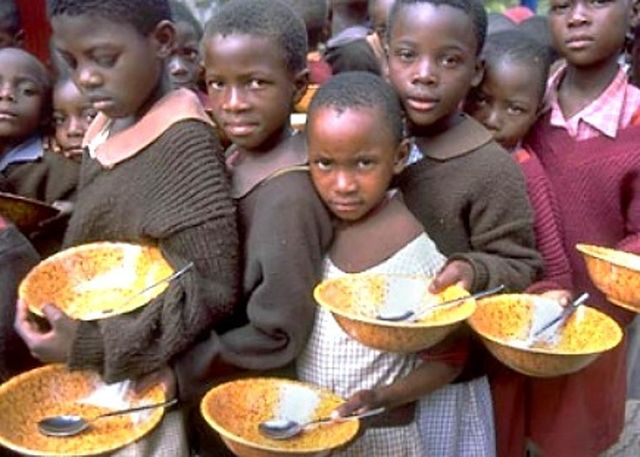The federal government says Nigerian children suffer poverty more than adults and are likely to be deprived of all 10 of the multidimensional poverty indicators.
Senator Abubakar Bagudu, the Minister of Budget and Economic Planning, disclosed this on Wednesday in Abuja at the 2024 World Children’s Day celebration with the theme “Listen to the Future”.
The day, a United Nations observance day, is commemorated on November 20 every year to promote international togetherness and awareness among children worldwide and improve their welfare.
At the 2024 commemoration, celebrated by the federal government, the United Nations Children’s Fund (UNICEF) and other stakeholders, the updated Situation Analysis of Children in Nigeria (SitAn) was inaugurated.
Mr Bagudu, represented by the ministry’s permanent secretary, Emeka Vitalis-Obi, said the 10 multidimensional poverty indicators include clean water, sanitation, adequate nutrition, health and education.
He added that the report stipulated that 26 per cent of primary school-age children, 25 per cent of junior secondary school-age children, and 24 per cent of senior secondary school-age children are out of school.
“At the same time, 1.3 million children have been forced to flee from their homes due to conflict,” the minister said.
Mr Bagudu also said schools and health facilities lacked or had only limited access to water, sanitation and hygiene services with low levels of essential gender-sensitive or disability-friendly services.
“While the data shows mortality is declining, it is still high at 41 per cent per 1,000 live births; according to the Democratic Health Survey 2003-2004, stunting is still at 40 per cent and wasting is at 80 per cent.
“Approximately 70 per cent of households consume contaminated water,” Mr Bagudu said.
He said that although the situation had progressed in most areas, the figures still revealed causes for concern.
According to him, the infant mortality rate is increasing but still unacceptably high, while child poverty is a big problem for enduring children, as demonstrated by the indices.
He, however, said that as a signatory to the Millennium Declaration and the government’s award for children, the federal government had assumed a commitment to significantly improve the child welfare indicators.
“One of the government’s aspirations in the National Government Plan 2025 and the Renewable Agenda is to reduce poverty through social protection programmes and improve the situation of children in the country.
“As a government, we will achieve this through accelerated, sustained, inclusive economic growth and social protection initiatives,” Mr Bagudu said.
The UNICEF representative in Nigeria, Cristian Munduate, said the report was not just about numbers but about the nation’s realities, showing where strides have been made and where urgent work remained.
She, however, said Nigerian children are full of resilience and promise.
“For the leaders, policymakers, and partners in this room, let us remind ourselves: this situation analysis is a call to action. We need to increase our investment in health, education, and child protection,” she said.
The World Children’s Day was first established in 1954 as Universal Children’s Day.
Since 1990, World Children’s Day also marks the anniversary of the date that the UN General Assembly adopted both the Declaration and the Convention on Children’s Rights.
(NAN)
Do you want to share a story with us? Do you want to advertise with us? Do you need publicity for a product, service, or event? Contact us on WhatsApp +2348183319097 Email: platformtimes@gmail.com
We are committed to impactful investigative journalism for human interest and social justice. Your donation will help us tell more stories. Kindly donate any amount HERE




